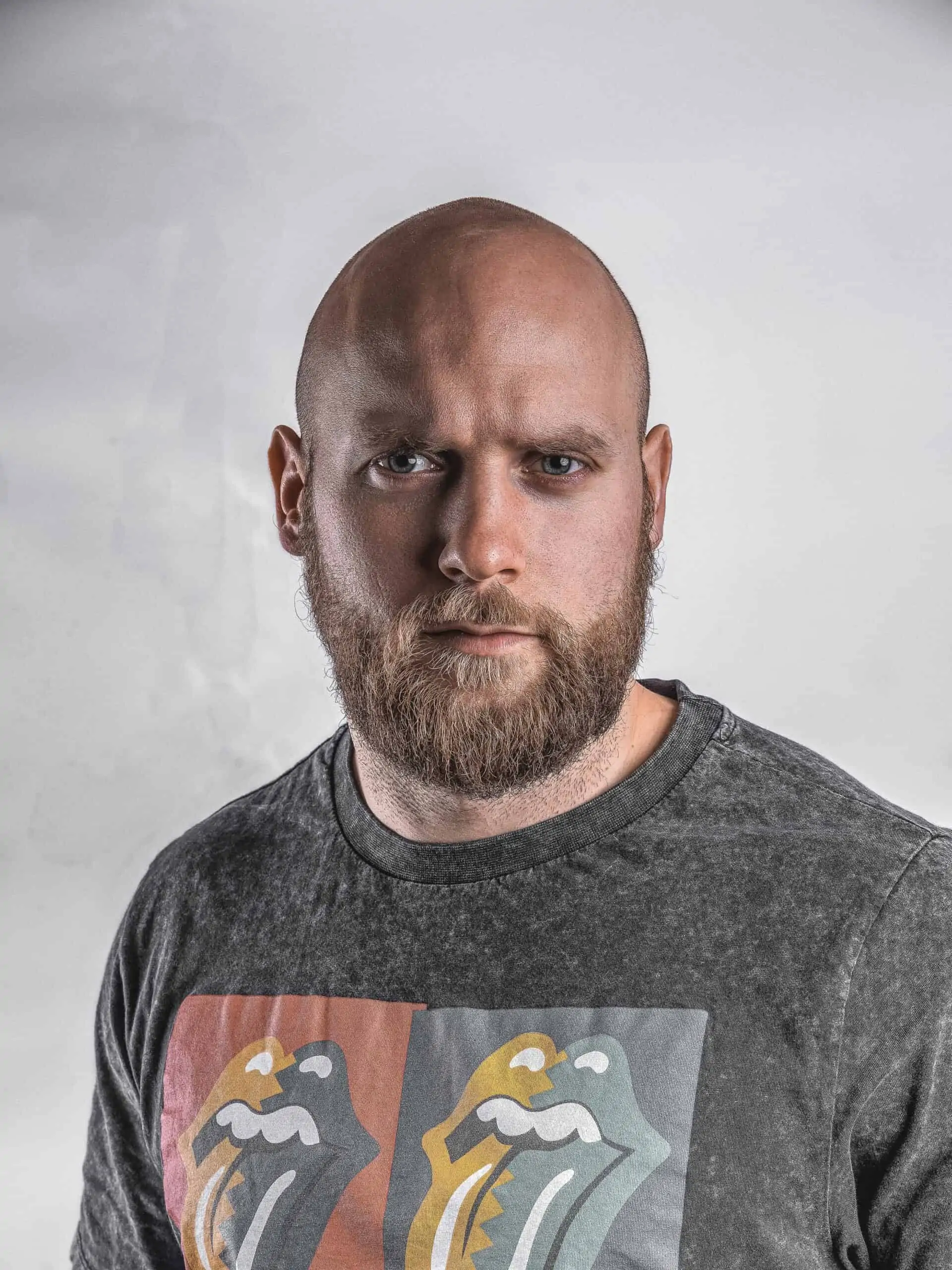Dandruff is one of the most common causes of hair loss. It’s caused by an overgrowth of yeast on the scalp which causes inflammation and irritation. Hair loss is one symptom, but you can also experience flaking, redness, and itching.
Basically, it’s just a mess. However, many people assume that because someone is bald they don’t have to worry about dandruff. The truth is that dandruff can affect any skin type- including those without hair!

So yes, it’s possible for bald people to get dandruff. This blog will teach you everything you need to know about how dandruff affects bald people and how it should be treated!
Table of Contents
What is dandruff?
First, what is dandruff? Well, many people think of it as a flaky scalp, which is common among people who are bald. But, dandruff is actually a lot more than just dandruff. It’s a whole system of conditions that are triggered by a fungus that lives on the scalp and causes inflammation and irritation.
Why does it affect bald people?
The main reason that dandruff can be problematic for people who are bald is that it leads to an overgrowth of dandruff that can lead to inflammation and irritation.
What are the signs that you have dandruff?
Dandruff can be hard to detect because it can show up in a variety of ways- including flakes, redness, and irritation. The most common signs include flaky or dry, itchy scalp, itching, and rough skin.
Dandruff and hair loss
Dandruff occurs due to an overgrowth of yeast. Your body normally produces a good quality oil called sebum (which is also found on the scalp) to moisturize and protect the hair follicles. But with dandruff, that oil production is somehow blocked.
A thick, white, flaky crust of flaking skin develops on the scalp, and flakes may fall to the face or pillow. The common belief is that everyone with hair loss gets dandruff at some point.
And, yes, some of them do. However, the majority of people who lose their hair do NOT have dandruff. According to the American Academy of Dermatology (AAD), most people with alopecia are not diagnosed with dandruff.
Can bald people get dandruff?
As we’ve already established, there is no one-size-fits-all treatment for dandruff. This may be because dandruff is a highly inflammatory condition with multiple triggers. No one condition, just like no one medication is a magic bullet that cures your dry skin or acne.
The treatments for dandruff vary from person to person, depending on the severity of their case and which problem triggered it. In general, the first step in treating dandruff is to identify the cause of the condition.
In some cases, the cause is as simple as a moisturizer being insufficient. In others, it’s not just an issue with the product being applied, but the buildup of dead skin cells.
How to treat dandruff as a bald person
Now that you know the facts, it’s time to get to know your scalp and see what can be done to treat it. This blog will help you make some tough decisions regarding what to use on your scalp, the most effective products to try, and which to avoid.
To know what you’re doing with your scalp, make sure you regularly check your scalp for these common signs of dry scalp. If your scalp is dry, use a lightweight, fast-acting shampoo and conditioner, such as Argan, Sun Silk, and Neutrogena Nourishing & Hydrating Shampoo and Conditioner, to remove buildup and get rid of any build-up.
If your scalp is also greasy or oily, try applying products containing Glycerin to increase moisture in the scalp.
Why Do People Assume Bald People Can’t Get Dandruff?
People assume bald people can’t get dandruff because of genetics. But there’s a very good reason for that! Humans have an inherent tendency to retain moisture in the scalp and hair. Hair tends to stay healthy longer when the skin is moist.
But because you can’t get hair follicles to grow into the skin, bald people tend to dry out easily. And when the scalp is dry, it’s extremely sensitive and inflamed. This makes it an ideal environment for dandruff to thrive.
Dandruff can also make it hard for a person to sleep because it can lead to itching and irritation in the scalp.
How Do You Get Dandruff?
Dandruff is caused by an overgrowth of yeast (candida albicans) on the scalp. This type of fungus can live on the scalp and grow more on thin hair than it would on thicker hair.
Conclusion
Dandruff can affect any skin type including those who have no hair. It can affect your scalp, nose, forehead, and other places. However, there are things you can do to make your scalp less dry and keep your scalp and hair healthy, which will help keep dandruff away.




